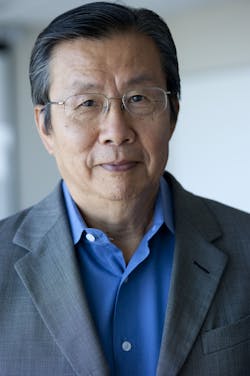
I am about to retire from a government lab research position. Do you have any best-practice advice about what people do in retirement? Also, is there a role I can play in a venture investment firm?
The short answer is to find something you really enjoy doing and are likely to continue to enjoy doing. The best case I know is what a savvy technical individual who worked for a national laboratory in a senior administrative position was able to do in his retirement. Fortunately he knew what he wanted and planned for it. He kept up being a technologist while he was working and was also quite involved at a couple of companies as a consultant. Because he was a respected individual, he was able to make an arrangement to consult for the laboratory after his retirement. Without work-related pressure and responsibilities, he was able to contemplate bigger-picture issues and work on technical projects for which he had a passion. He then contracted a CRADA (Cooperative Research and Development Agreement) with the lab to develop one of his ideas, patented it, and negotiated a “paid up license” for his IP (intellectual property) with a company. He was able to do all of this by knowing the rules and progressively disengaging himself from the lab as conflict concerns surfaced. He did everything by the rules and is able to “live happily ever after.”
It is difficult for a lot of people to deal with retirement because people put a value on their time. Going to work provides a routine to feel productive to reinforce one’s self-worth. This thinking creates a problem in retirement unless there is a paradigm shift about what is a worthwhile use of your time. I recall a retired GE executive who wrote in the Harvard Business Review many years ago about how he was able to cope with retirement: “I feel good about myself by finding satisfaction having done something well, regardless of what the task is.” The example he cited was spending two weeks restoring a chair beautifully.
Personally, my plan is to leverage the resources and knowledge I have accumulated to enable really capable technical people to become successful entrepreneurs. It would be a shameful waste to squander what I’ve learned in 30-plus years in business. I need more than hobbies; I have to feel productive. Retirement is simply not contemplated.
As to your second question, most likely you will be needed only from time to time. Most VC firms have partners who specialize in the business segments they invest in, and investment decisions are usually made based on a top-down view by talking to a lot of opinion leaders in the space. And once they invest in a company, they can learn a lot from the technical founder or CTO.
How should I deal with a director who wants to know everything and bombards me with e-mails and suggestions?
I can see this as a bit of an annoyance because you have day-to-day issues that keep you busy. You can manage the interaction with regular correspondence. For example, you can reduce the number of e-mail exchanges by responding once or twice a day at a designated time so that the person would learn over time when to expect a response.
I can argue that you should count your blessings that this director is motivated to help you. Some directors are disengaged, show up only for board meetings, and don’t know what is going on. They eventually become a rubber stamp on votes on issues in front of them, conforming to the wishes of the management. Good advice occurs randomly and can only be received when a senior person with business wisdom gets to know the nuances of your business. I am not sure there is a shortcut without the investment of time. My guess is the anxiety on the part of your director will diminish as he or she learns the business over time while you patiently provide the knowledge. I suspect one good idea from a knowledgeable director could be worth the investment of your time to get meaningful advice. You just have to learn how to better manage the way you work so you can do what’s important but not urgent.
About the Author
Milton Chang
MILTON CHANG of Incubic Management was president of Newport and New Focus. He is currently director of mBio Diagnostics and Aurrion; a trustee of Caltech; a member of the SEC Advisory Committee on Small and Emerging Companies; and serves on advisory boards and mentors entrepreneurs. Chang is a Fellow of IEEE, OSA, and LIA. Direct your business, management, and career questions to him at [email protected], and check out his book Toward Entrepreneurship at www.miltonchang.com.
